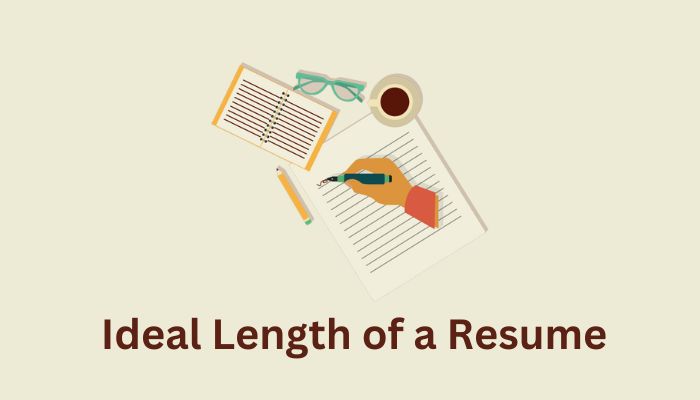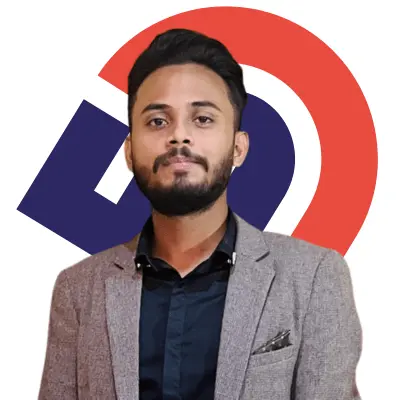Sometimes it can be confusing to figure out how long your resume should be when you’re applying for a job. Some people say it should only be one page, but what if you have a lot of experience that you want to include? And what if you’ve been working for a long time and have a lot of jobs to talk about? It can be hard to know what to do.
But don’t worry! We have a helpful guide that can solve this problem. Our comprehensive guide, based on the analysis of real resumes from successful candidates at esteemed companies like Spotify, Booking.com, Verizon Digital Media Services, Amazon, and Intercom, demystifies the resume length puzzle. It will also provide 15 helpful tips and a checklist to assist you in crafting your own resume.
In this guide, we will provide you with all the answers to your inquiries about the appropriate length for a resume. This includes:
- How long should a resume be?
- How many pages should my resume be based on my level of experience?
- What should you include on your resume — and what should you leave out?
- What should you do if your resume is shorter than one page?
- Resume Length Checklist
- What distinguishes a resume from a CV?
How Long Should A Resume Be?
Recruiters don’t have a lot of time to spend on each application. Studies show they only give about 6 to 13 seconds of attention. Since they have to look at around 250 applications for just one job, it’s not surprising that they go through them quickly, especially at first. So, it’s important to make your resume concise and impactful. That way, there’s a better chance they’ll read the whole thing.
In 2023, the ideal resume length is one page. However, this is not a strict rule and can be adjusted based on your level of experience.
Resume Length By Career level
Entry Level:
- Who They Are: Recent graduates or individuals with minimal work experience entering the workforce.
- Resume Length: one page
Junior Level:
- Who They Are: Professionals with up to 2 years of experience, often in early stages of their careers.
- Resume Length: One page
Mid Level:
- Who They Are: Individuals with 2-10 years of experience, often in roles with increasing responsibilities.
- Resume Length: 2 pages
Senior Level:
- Who They Are: Seasoned professionals with 10+ years of experience, likely in leadership or managerial roles.
- Resume Length: Up to3 pages
Top Level (Executive/C-Suite):
- Who They Are: Executives, CEOs, and individuals in top leadership positions.
- Resume Length: 2-3 pages
What should you include on your resume?
Your one-page resume should have:
- Your Resume’s Heading
- A short heading containing your contact details
- Include 3 to 5 jobs in the work experience section
- Education details
- Any other important information (like necessary abilities, languages, or certifications) that are relevant to your resume.
what should you leave out?
- Remove older work experience; only include the past 15 years since anything beyond that is probably not important.
- Make the bullet points shorter; limit them to 3-6 achievements for recent roles and 1-2 for older positions to keep it brief.
- Avoid repeating bullet points; if an accomplishment is mentioned elsewhere, don’t include it again under a different role.
- Simplify education section; if you’re not currently a student, just include 1-2 lines for your degree, school, and major awards. You don’t need to mention your GPA, classes, or extracurricular activities. Adding the graduation year is optional.
- Remove the resume summary; if you choose to include it, keep it to 2-3 lines maximum.
- Leave out irrelevant sections; don’t include volunteer work, projects, hobbies, or skills unless they directly relate to the job you’re applying for.
- Don’t list references; you can provide them when asked during the hiring process.
- Keep contact information concise; just use one line at the top of the resume.
- Don’t include pictures or graphics; they’re not necessary, especially in the United States.
What should you do if your resume is shorter than one page?
If you’ve just recently graduated or have limited work experience, your resume might feel a bit empty. But don’t worry, there are ways to make your resume stand out without including unnecessary information.
1. Contact Information:
- Include your name, phone number, and professional email address.
2. Objective or Summary:
- Craft a concise objective or summary that highlights your career goals.
3. Education:
- List your educational background with degree, institution, graduation year, and major awards.
4. Relevant Skills:
- Showcase key skills relevant to the job you’re applying for.
5. Work Experience:
- Include your most recent and relevant work experience.
- Use 3-5 bullet points for each role, emphasizing achievements and responsibilities.
6. Projects or Achievements:
- Highlight any noteworthy projects or accomplishments.
- Keep it brief but impactful.
7. Extracurricular Activities:
- If applicable, mention relevant extracurricular activities.
- Use 1-2 bullet points to briefly describe your involvement.
8. Languages or Certifications:
- Include any languages spoken or relevant certifications.
9. References:
- Optionally, state that references are available upon request.
10. You can also add section for hobbies or interest
Remember, the goal is to keep it simple, focused, and tailored to the specific job you’re applying for. Prioritize relevant information to make a strong impression in a concise format.
Ideal Resume Length Checklist
What distinguishes a resume from a CV?
Resumes and CVs both focus on your education and work history, but they have some differences.
A resume is a shorter document, usually only one or two pages long, that summarizes your work experience and highlights skills relevant to the job you want. It is designed to be easy for employers to quickly scan and find key achievements.
On the other hand, a CV (or Curriculum Vitae) provides a more detailed account of your entire career.
These differences are also influenced by where you are. In North America, resumes are the standard for most jobs, while CVs are mainly used in certain professions like academia or medicine.



